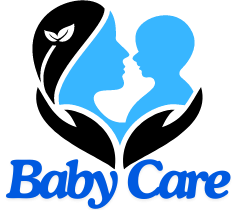The first months with your newborn baby are full of special moments and opportunities to nurture their growth. As a parent, you may wonder what activities you should do with a newborn.
The key is interacting through caregiving tasks like feeding, bathing, and sleeping, as well as engaging their senses with touch, sight, sound, and movement activities.

This article outlines the best infant activities you can do during the newborn stage for bonding and stimulating early development.
What activities should you do with a newborn?
You should engage in plenty of bonding activities like skin-to-skin contact, responding promptly to cries, and infant massage.
It’s also important to provide sensory stimulation through sights, sounds, touch, and movement.
Additionally, start early play activities like reading, tummy time, and dancing together to boost development. Most importantly, meet all their caregiving needs with affection.
Bonding Activities
The first few weeks and months with your newborn are crucial for establishing a strong bond.
Spending quality time interacting, holding, and comforting your baby leads to secure attachment. Here are some great bonding tips:
Skin-to-Skin Contact
Holding your naked newborn against your bare chest facilitates bonding, regulation of breathing and body temperature, and more restful sleep.
Aim to have skin-to-skin time for at least an hour or two throughout the day.
| Benefits: regulates heartbeat and breathing, stabilizes temperature, aids sleep and digestion, reduces crying and colic, supports brain development | Tips: find a quiet, distraction-free space; remove baby’s diaper and hat (keep a blanket nearby); open your shirt and hold baby upright against your chest |
Respond to Cries
Being responsive to your newborn’s cries in the early weeks encourages secure attachment between parent and child. Tend to them as soon as possible when they cry.
| Benefits: reduces prolonged crying, makes baby feel safe and comforted, establishes trust and caregiving bond | Tips: hold, rock, sing/whisper, offer a pacifier, check for needs like hunger or diaper change |
Infant Massage
Gently massaging your baby promotes bonding, aids digestion, improves sleep, and supports development. Use soft, soothing strokes on the legs, arms, back, and tummy.
| Benefits: nurtures touch bond; aids relaxation and sleep; boosts immune system; supports digestive and circulatory systems | Tips: use natural oil; knead gently like bread dough; slide palms over rounded body parts; cradle head when turning |
Sensory Stimulation
Exposing newborns to a variety of sensory experiences promotes brain development during this crucial window. Here are development-boosting senses to engage:
Sight
While newborns can’t see far distances yet, they love staring at faces, contrasting colors, and patterns.
Hang mobiles or art above their bed. Smile, make eye contact, and hold them close during feedings.
| Benefits: visual tracking and focus skills; hand-eye coordination; cognitive and visual development | Tips: use black/white and contrasting color patterns; have bright light sources; hold baby 6-10 inches from your face; use slow, exaggerated gestures |
Touch
From patting, stroking, and massage to skin contact, nurturing touch aids growth. Use varying textures and materials — soft fur, rattles, cold/warm sensations.
| Benefits: soothes babies; matures nervous system; builds secure attachment | Tips: gentle tickles, light circular movements, textured fabrics and toys, firm hugs |
Sound
Talking, singing, shushing, and exposure to ambient sounds advance hearing, speech, and language skills. Mimic noises; read nursery rhymes aloud.
| Benefits: hearing development; receptive/expressive language skills; speech production | Tips: sing lullabies; play soft music; tap out rhythms; make “ga-ga” vocal play; shuffle paper near baby’s ear |
Play Activities
While newborns don’t actively engage in play just yet, introducing activities stimulates cognitive, motor, and social skills.
Reading
Reading aloud, even for just a few minutes daily, advances language development. Use baby books with high contrast, patterns, photos, and rhyming text.
| Benefits: vocabulary building; listening skills; parent-child bonding | Tips: use expression, rhyme, and animation in your voice; show pictures up close; use board books they can grasp |
Tummy Time
Having newborns lay on their stomachs when awake builds the head, neck, and shoulder strength needed for crawling, rolling, and sitting up.
| Benefits: develops arm, neck, and back muscles; visual tracking skills; motor skills prep | Tips: place toys in sight; lie down with baby; start with just 3-5 mins, increasing gradually |
Music & Movement
Bouncing gently, dancing together, and introducing musical toys/songs sparks cognitive and motor development.
| Benefits: hearing and language skills; balance, coordination; parent-child bonding | Tips: hold baby close while slowly swaying; use rattles softballs; sing interactive songs |
Final Thoughts
The newborn stage, while tiring for parents, is vital for nurturing development through affectionate care and activities.
Focus on bonding through touch, responding to needs, skin contact, infant massage, and quality time together.
Engage their budding senses with sights, sounds, textures, and reading. And lay the foundation for hitting physical milestones with tummy time and musical motion.
What matters most is your loving interaction while caring for their needs. Before you

